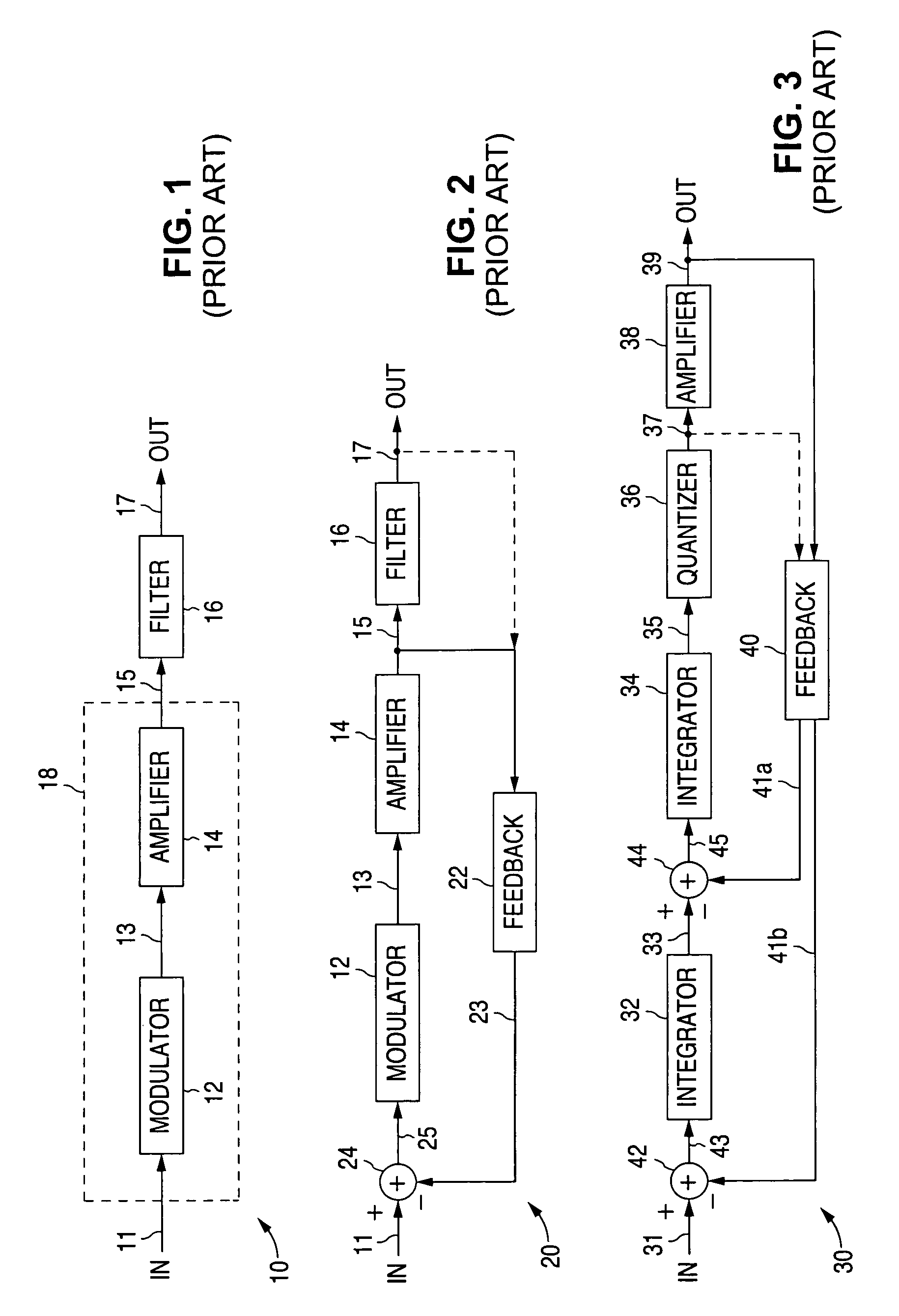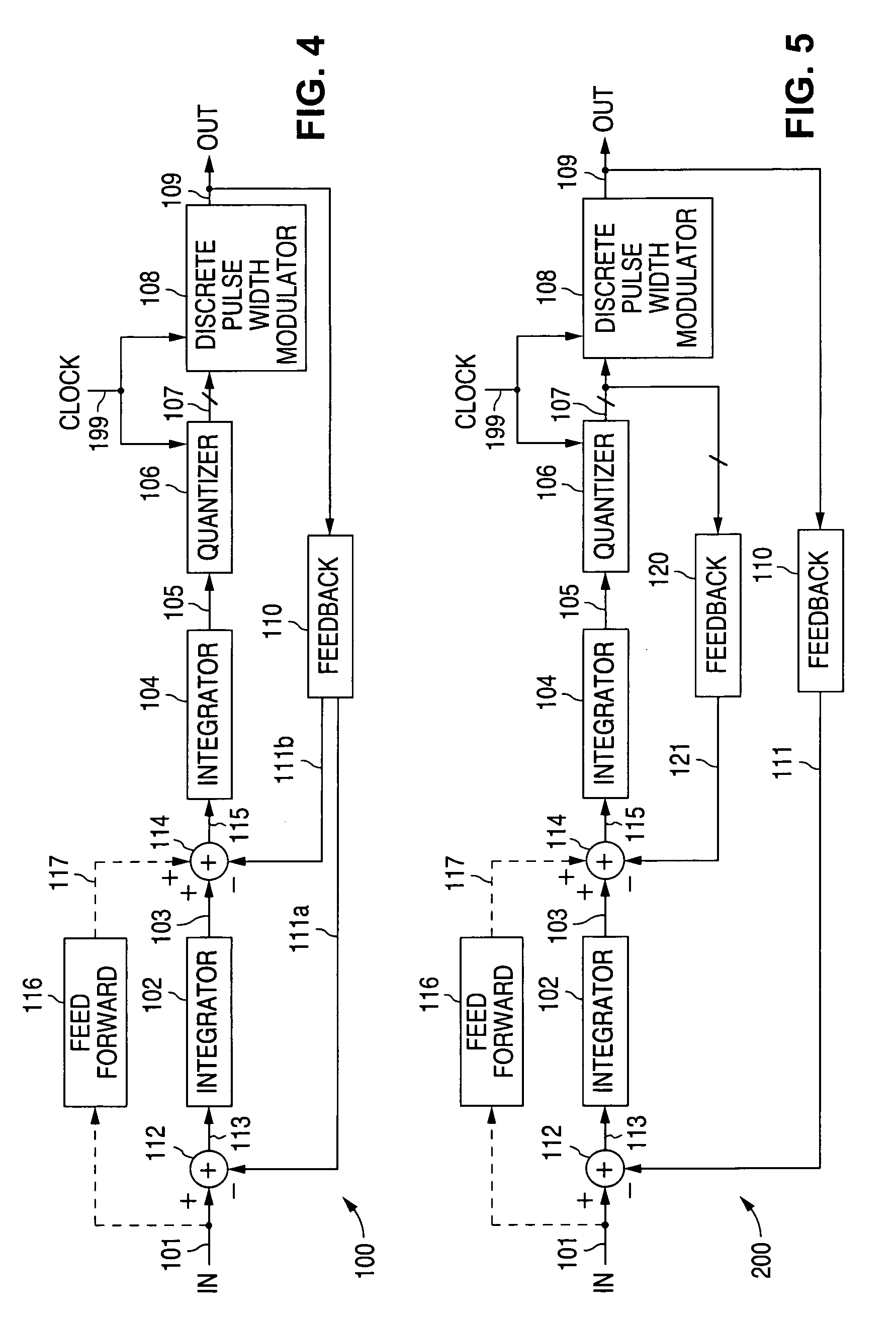Apparatus and method for converting analog signal to pulse-width-modulated signal
a technology of analog signal and pulse width, applied in pulse technique, code conversion, instruments, etc., can solve the problems of inability to achieve difficulty in creating a system stable and still having high gain and wide bandwidth, and inability to achieve very large in-band gain
- Summary
- Abstract
- Description
- Claims
- Application Information
AI Technical Summary
Benefits of technology
Problems solved by technology
Method used
Image
Examples
Embodiment Construction
[0027]Referring to FIG. 4, a high-efficiency switching amplifier system 100 using noise shaping techniques in accordance with one embodiment of the present invention includes serially coupled integrators 102, 104, a quantizer 106, a discrete pulse-width modulator 108, a feedback network 110 and signal summers 112, 114, interconnected in a closed loop configuration substantially as shown. The input analog signal 101 is alternately summed with feedback signals 111a, 111b in the signal summers 112, 114 and integrated by the integrators 102, 104, in accordance with well-known delta-sigma techniques. (A second order delta-sigma configuration is shown and discussed herein, but it will be readily understood that higher order delta-sigma techniques can also be used in accordance with the present invention.) The resulting signal 105 is then quantized in a multiple-bit quantizer stage 106, and the multi-bit quantized signal 107 is converted to a discrete time PWM signal 109 by the discrete pu...
PUM
 Login to View More
Login to View More Abstract
Description
Claims
Application Information
 Login to View More
Login to View More - R&D
- Intellectual Property
- Life Sciences
- Materials
- Tech Scout
- Unparalleled Data Quality
- Higher Quality Content
- 60% Fewer Hallucinations
Browse by: Latest US Patents, China's latest patents, Technical Efficacy Thesaurus, Application Domain, Technology Topic, Popular Technical Reports.
© 2025 PatSnap. All rights reserved.Legal|Privacy policy|Modern Slavery Act Transparency Statement|Sitemap|About US| Contact US: help@patsnap.com



